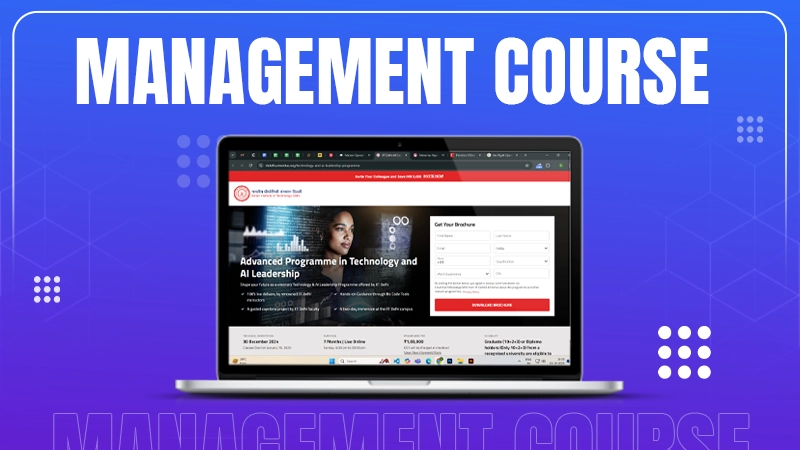
The operation management course is one of the best courses for someone who wants to start their own supply chain business. This course helps you learn how you can organize, control, and plan all the aspects of delivering finished products.
As someone who has done BBA, this course could increase my knowledge in the business field, which would eventually help me maximize my profit and make my business more efficient. Henry Mintzberg once said, “Management is, above all, a practice where art, science, and craft meet.”
We all have read that management is a combination of art and science and if you are someone who wants to do an operation management course you have to choose the right course for you, but how can you do that?
Well, you don’t have to worry since I’m here for your aid, in this article I’ll mention 5 important tips that could help you in picking out the right operation management course. So, make sure to pay attention.
5 Tips to Choose the Right Operations Management Course
Here are five helpful tips for choosing the right operations management course these tips are being mentioned by catering to all the requirements for the course, so pay good attention:
1. Career Goals
Look for a course that aligns with your career goals. Start by thinking about where you want to go in your career. If you aim to be a supply chain manager, choose a course that equips you with the skills and knowledge required to become an excellent supply chain manager.
When choosing an operations management course, look for a learning program that equips you with skills needed for your ideal job, such as managing production processes or improving operational efficiency.
Your course needs to manage your goal, you can’t pick a course that is far related to the thing that you are going to do in the future. Take your time and do your research.
2. Check the Course Curriculum
It is essential to check the course curriculum before enrolling in the course. Ensure that the course covers topics that match your interests and career needs.
Additionally, check if the curriculum includes hands-on learning experience, case studies, and real-world examples to help you apply what you learn. For instance, if you want to learn more about operations management and analytics, look for topics like Six Sigma, lean operations management, and quality analytics.
Checking the curriculum is important because only then you’ll be able to know what exactly you are studying.
3. Look for Practical Learning
Hands-on learning experience is crucial in operations management. Opt for courses that include real-world case studies, simulations, and practical projects, allowing you to apply your knowledge to real-life situations.
This also helps solidify your learning and efficiently use theories and concepts to solve real-life problems. Also, try to find courses that allow you to do an internship related to your course.
Internship is the best way for practical learning and this will also help you in making some extra cash. Take a look at the statistics below and know what benefits you can get by doing internships.

Besides, don’t enroll in a course that is only theoretical based, as it could get boring and there are chances you will start to lose interest.
4. Consider Flexibility
If you are working or have a busy schedule, look for courses that offer flexible learning options, such as part-time, weekend, or online classes. For instance, IIT Delhi’s Technology & AI Leadership Programme (IITD TAILP) is an online course designed for working professionals who want to learn about artificial intelligence.
The IITD AI course equips learners with the technology strategy, innovation, and leadership skills to thrive in today’s dynamic landscape. There could be different reasons why you need a flexible schedule, maybe because of a job, personal issue, or other things.
If you try to find it the right way, you’ll get a flexible course that would align with your busy schedule.
5. Check Accreditation and Faculty Expertise
Ensure that your program is well-accredited and recognized in the industry. Also, make sure that the course is taught by experienced faculty who have industry knowledge.
This ensures you are learning from experts who understand both the theory and the practical aspects of operations management. Good teachers/professors will be a great help, take a background check on the faculty or talk to previous graduates for a better understanding.
DID YOU KNOW?
The salary of a newly appointed operation manager is between $40k-$70k annually.
Conclusion
The next time you choose an operations management course, keep these tips in mind. Additionally, with the rise of artificial intelligence, many operations management courses are incorporating AI-driven tools and techniques.
AI courses, focused on predictive analytics, automation, and process improvements, are becoming essential for professionals aiming to stay ahead in the industry.
Moreover, mastering AI in operations will enable professionals to optimize resources, predict market trends, and make data-driven decisions more efficiently.